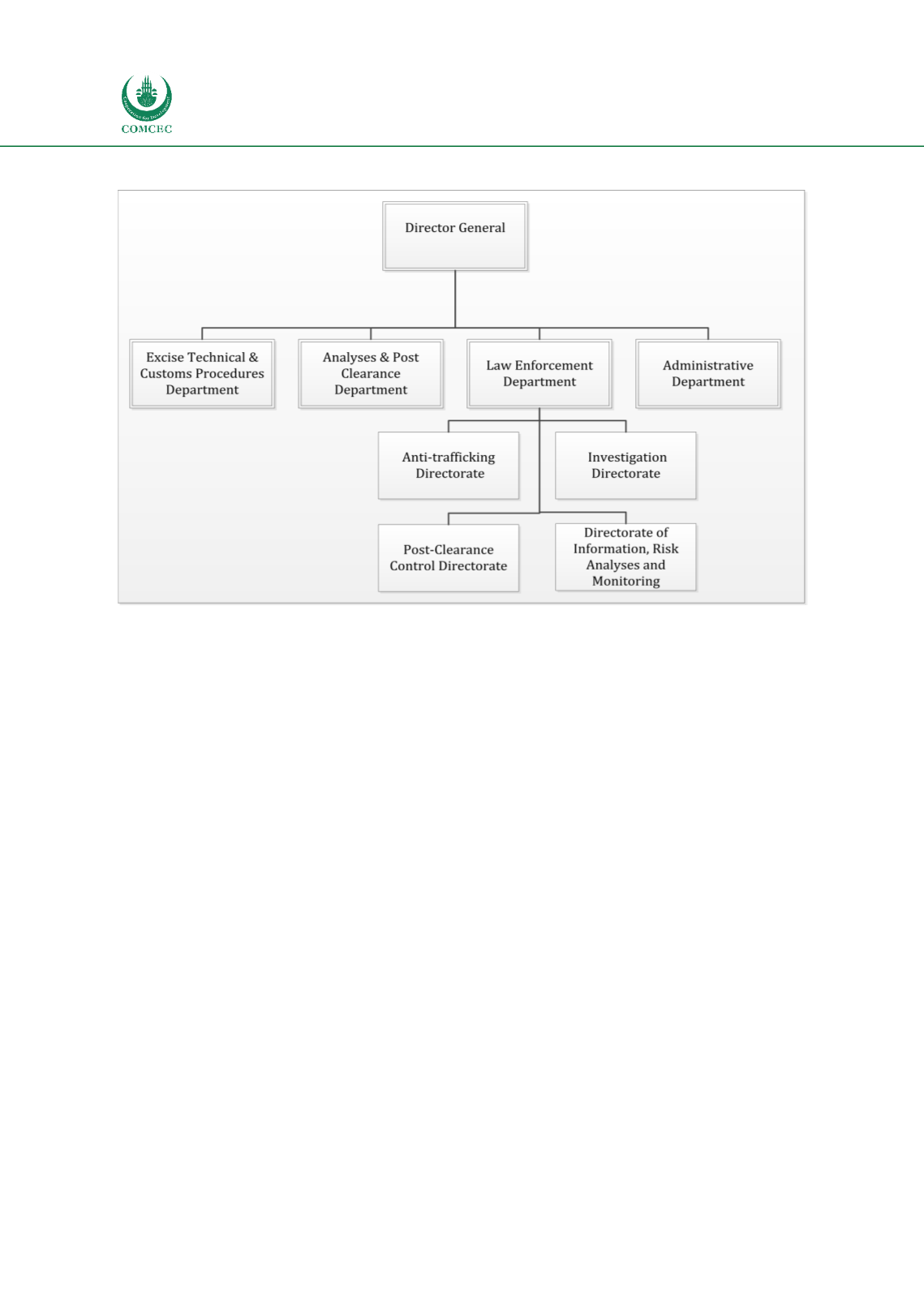

Facilitating Trade:
Improving Customs Risk Management Systems
In the OIC Member States
126
Figure 44: ACA Organizational chart
Source: Albanian Customs Administration website
5.3.3
Legal aspects of CRMS
In 1999, ACA adopted the Law No 8449, "The Customs Code of the Republic of Albania" and in
2014, an addendum to the Customs Code No 02. Currently, Albanian Customs is applying the
implementing provisions of the new Customs Code to be partially aligned with the Commission
Delegated Regulation (EU) 2015/2446 and Commission Implementing Regulation (EU)
2015/2447. Albania achieved EU candidate country status in June 2014 and is a member of WCO
since 1992.
ACA has adopted the Administrative Instructions, Implementing Regulations, and Standard
Operational Procedures statutory instruments that cover the CRM. It is mandatory for traders
to submit to ACA the advance cargo information related to import and export consignments. AW
currently manages transit procedure; it is expected the NCTS to become operational by mid-
2018.
The Customs Code of the Republic of Albania confers power to the ACA to detain/seize the goods,
means of transport and persons. It seems that currently, the legal environment does not set any
barriers to the use of modern CRM. As a part of the overall ACA customs strategy, the CRM is
oriented towards trade facilitation, risk detection, revenue collection and safety, security and
environmental protection based on risk management.
5.3.3.1
Authorized Economic Operator
The Albanian Customs Administration has implemented the AEO status according to WCO
standards, and for that purpose, a Common Recognition Agreement has been signed with the
CEFTA MS in compliance with EU legislation. ACA has defined the benefits resulting from the
status of AEO operator as follow:
More favorable treatment regarding risk assessment and control:
















